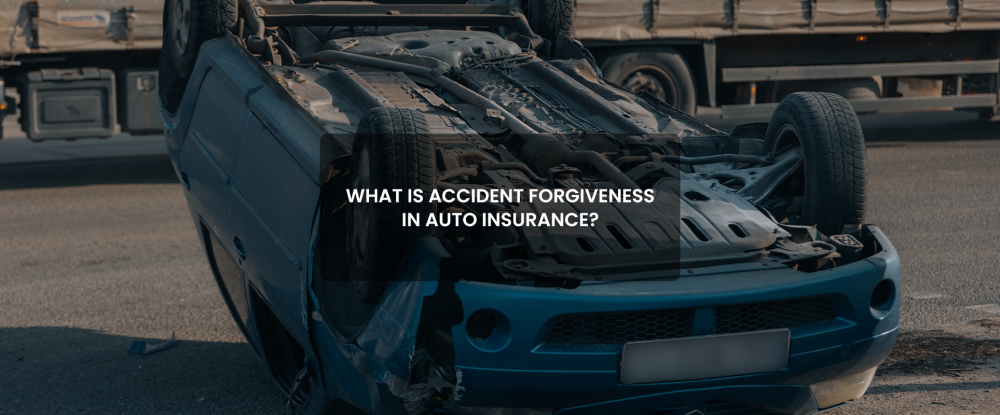
Accident forgiveness is an optional add-on that prevents your premium from going up after your first at-fault collision. Think of it as a first-incident waiver for responsible drivers. Sarah was exactly that—a cautious driver with years of clean driving, even through tough winters. One snowy evening, a sudden blizzard turned her commute treacherous, and she skidded into another car at an intersection. No one was hurt, but she braced for the rate hike that usually follows an at-fault collision.
Then she remembered the add-on she’d purchased a year earlier: accident forgiveness. Under her policy, that first incident wouldn’t trigger a premium increase. Instead of facing a costly jump, Sarah kept her rate steady—turning a scary moment into a manageable bump in the road.
Sarah’s experience highlights a bigger reality: even careful drivers face risks. In 2021, distracted driving contributed to around 26% of serious injury collisions in Canada. And while a blizzard isn’t a “distraction,” hazards such as weather and congestion—paired with true distractions such as cellphone use or an unexpected situation on the road—can catch anyone off guard. If you’ve maintained a perfect driving record for years, the prospect of a single mistake erasing it and spiking your premium is a real worry.
That’s where accident forgiveness auto insurance comes in. It’s an increasingly popular feature offered by Canadian insurers to provide a financial safety net. But what exactly is it, and how does it work across the provinces?
Accident forgiveness, as mentioned earlier, is an additional coverage option that protects you from a premium increase following your first at-fault accident. Normally, if you are found to be 25 per cent or more at fault in a collision, the accident will be rated on your file. This often results in a steep surge in car insurance rates—a surcharge that can last for years. With accident forgiveness, your insurer essentially gives you a one-time pass: they agree not to raise your rate at renewal because of that specific accident, treating your claims history as if the incident never occurred for rating purposes.
Yes. In Canada, accident forgiveness is typically purchased as an endorsement (often called an accident rating waiver—OPCF 39 in Ontario; SEF 39 in Alberta). It isn’t automatically included in a standard policy. Some insurers may include it for long-term clients who meet certain criteria, but most drivers pay a small annual fee—often $50 to $100—to add this protection.
Clean driving record:
You usually need several years with no at-fault collisions on your record (often about six years). Tickets and minor violations can also hurt your chances.
Experienced driver:
You should have had continuous car insurance and a valid driver’s licence for a number of years. Long gaps in coverage can make you ineligible.
Principal driver only:
Accident forgiveness normally applies to the main (principal) driver listed on the policy. Other listed drivers on the same car may not be covered by this feature.
Private passenger vehicles:
This coverage is meant for personal-use cars and SUVs. It generally doesn’t apply to vehicles used for business or commercial purposes.
Accident Forgiveness is designed to "forgive" standard at-fault driving errors, not criminal actions.
The coverage applies to the financial consequences (such as the premium increase) of a typical at-fault collision—such as a rear-end collision, a lane change mistake, or an incident caused by poor judgment or adverse weather conditions.
However, this protection is voided if the accident is related to a serious or criminal driving offence. Incidents that are not covered include collisions where the driver is convicted of:
Any offence under the Criminal Code of Canada, such as impaired driving (DUI), dangerous driving, or vehicular manslaughter.
Major traffic infractions, which can include street racing, stunt driving, or failure to remain at the scene of an accident (hit-and-run).
Driving while unauthorized or with a suspended license.
In short, accident forgiveness offers protection for an honest mistake, but it does not protect against the consequences of major legal infractions.
One-time use: Generally applies only to your first chargeable at-fault accident.
Not transferable: The accident still appears on your official driving history; if you switch insurers, the new company may rate it.
Serious offences excluded: Doesn’t protect against major convictions (e.g., impaired driving or street racing) or other tickets/demerits.
For most Canadian drivers with a clean record, yes. Consider the math: an endorsement might cost about $80 per year ($800 over ten years), while one at-fault claim can boost premiums by hundreds annually for up to six years—potentially several thousand dollars in total. The main benefit is financial stability: your premium is protected so one lapse doesn’t become a long-term penalty.
Availability and rules vary by province and insurer. Whether you’re in Alberta, Ontario, or the Maritimes, an experienced broker can confirm eligibility, compare the true cost of accident forgiveness across providers, and make sure the proper endorsement (e.g., OPCF 39 or SEF 39) is added to your policy. At Begin Insurance, our licensed brokers can also help you find suitable coverage for high-risk drivers, vintage or luxury vehicles, or motorcycles, and explain both mandatory and optional coverages. We can also help you find the best auto insurance coverage for high-risk cars, vintage or luxury cars or motorcycles. Our insurance brokers take time to explain each policy, answer all your queries and guide you toward the best coverage for your lifestyle. We offer assistance for both mandatory and optional coverages. Connect with us to get a free quote or consult an experienced insurance broker.